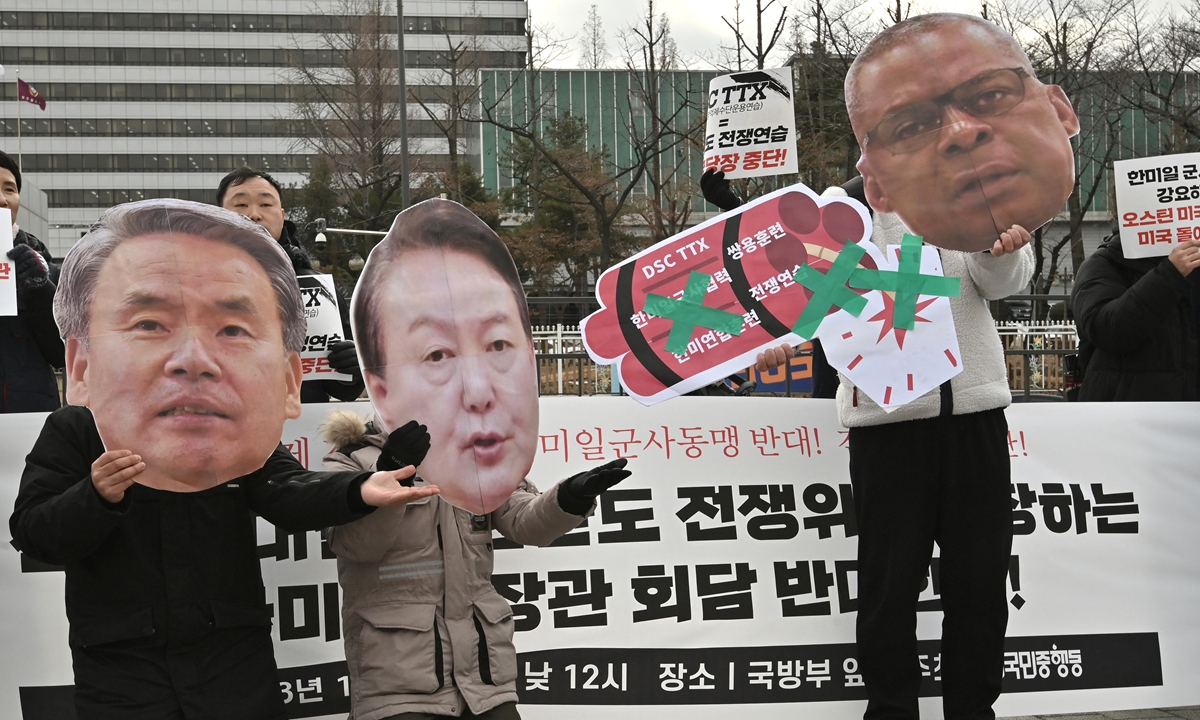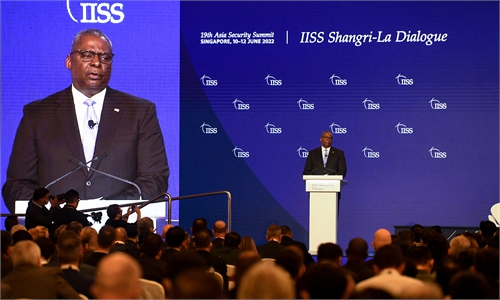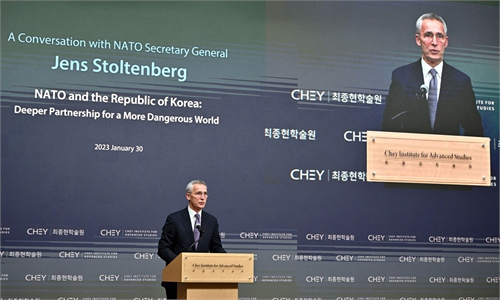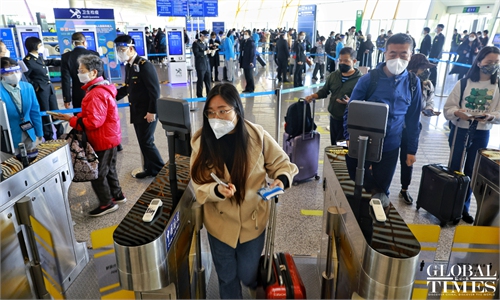US defense chief visits S.Korea to strengthen alliance, 'adds uncertainty to region'
Regional peace 'faces more uncertainties' due to US attempt to contain China

Anti-war activists perform during a rally against the visit of Lloyd Austin in front of the Defense Ministry in Seoul on January 31, 2023.
After securing billions of dollars in additional military supplies to add more fuel to the flames of the Russia-Ukraine conflict, US Defense Secretary Lloyd Austin and his team are shifting their focus to the Indo-Pacific this week. Experts said the US is trying to make their allies in the Asia-Pacific region continue serving its hegemonic purpose to contain China, and Washington's attempt to keep its military influence will add more uncertainties to the complex regional security situation.
The defense chiefs of the US and South Korea vowed on Tuesday to expand military drills and boost nuclear deterrence, planning to "counter North Korea's weapons development and prevent a war," Reuters reported.
Austin met with South Korean Defense Minister Lee Jong-sup, following their annual security talks in November in Washington, and was due to meet with President Yoon Suk-yeol before flying to the Philippines.
Wang Junsheng, a research fellow of East Asian studies at the Chinese Academy of Social Sciences in Beijing, told the Global Times on Tuesday that "a priority for Austin in this trip is to make sure South Korea believes the US is still keeping its so-called promise to protect Seoul from the rising nuclear capabilities of North Korea. Another is to convince South Korea to stand closer with the US to contain China."
The US might also want to mediate the problem between South Korea and Japan, but this is not high on the agenda of Austin's delegation, Wang noted.
In 2022, North Korea showed great progress in the development of missiles, and due to Washington's negative attitude toward negotiations with Pyongyang, the denuclearization process and negotiations on the security situation of the Korean Peninsula are still in deadlock. This makes the issue remain a good excuse for the US to increase its military presence in the region, Chinese analysts said.
According to the VOA on Monday, a senior US defense official said "The security environment in the Indo-Pacific is growing more complex, which we see day to day," citing ever more "aggressive behavior" by both China and North Korea.
A Beijing-based expert on international relations who asked for anonymity told the Global Times that "it's clear that everything the US wants from its allies is basically about China. It's always about how to persuade or force its allies to cooperate with the US to contain China, and how to make the US' allies to pay the price for the US in a potential conflict with China."
Therefore, it is impossible to expect the US presence in the region to contribute to peace and stability, because peace would not provide an excuse for the US to maintain its military presence, the expert said.
"Washington wants to see tensions but doesn't want to see regional countries solve their own problems. This is why they leave negotiations with North Korea in deadlock but are keen to have more military drills with South Korea, and this is also why the US wants to reopen its military bases in the Philippines even though Manila is making efforts to develop friendly and stable ties with China," he noted.
Economic recovery is the most urgent and important task for most countries in the Asia-Pacific region, so development, rather than security, should be the priority among shared concerns of the regional states, analysts said.
The US can offer almost nothing for regional countries to recover the economy, but it is really good at spreading fear by using the excuse of security. Such old tricks will not work as long as China and regional partners keep a clear mind and stick to common interests for economic integration and recovery, experts noted




